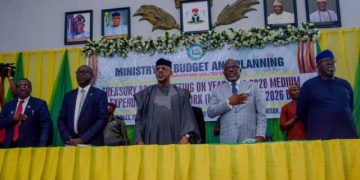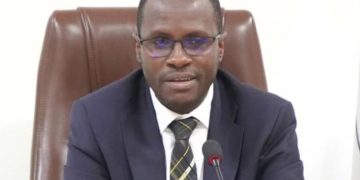WorldStage– The Bill and Melinda Gates Foundation has announced a new 1.4 billion dollar commitment to help smallholder farmers across sub-Saharan Africa and South Asia adapt to growing impacts of climate change.
The announcement in a statement by the Bill & Melinda Gates Foundation was made at the 30th UN Climate Change Conference (COP30) in Belém, Brazil, where global leaders called for stronger and locally driven approaches to climate adaptation.
According to the Foundation, the four-year investment will expand access to innovative tools that will enable farmers build resilience against extreme weather events, while protecting hard-won gains against poverty.
“Smallholder farmers are feeding their communities under the toughest conditions imaginable.
“We’re supporting their ingenuity with the tools and resources to help them thrive, because investing in their resilience is one of the smartest, most impactful things we can do for people and the planet,” it said.
The foundation said that the new funding supports Gates’ broader vision, outlined in his COP30 memo, to prioritise climate investments for maximum human impact and help lift millions out of poverty by 2045.
“Smallholder farmers in low-income countries produce about one-third of the world’s food, yet they remain among the most exposed to droughts, floods, and rising temperatures.
“Despite this, less than one per cent of global climate finance is directed toward protecting these vital food systems,” it said.
The foundation said that research from the World Bank indicated that targeted adaptation investments could raise GDP in developing and small island states by up to 15 per cent points by 2050.
It added that the World Resources Institute estimates that every dollar invested in adaptation yields over 10 dollars in social and economic benefits within a decade.
“Climate adaptation is not just a development issue; it’s an economic and moral imperative.
“This new commitment builds on our support for farmers in Africa and South Asia who are already innovating to withstand extreme weather.
“But they can’t do it alone, governments and the private sector must work together,” it said.
According to the foundation, the investment will focus on scaling farmer-led and evidence-based innovations to strengthen resilience and productivity.
It said that this includes the expansion of digital advisory services through mobile platforms, which provide AI-powered weather forecasts and tailored farming advice.
“One of such initiatives, AIM for Scale, aims to reach 100 million farmers across Africa, Asia, and Latin America by 2030.
“It also supports the development of climate-resilient crops and livestock that can withstand drought, heat, and emerging pests while improving yields and nutrition.
“The investment will also promote soil health innovation that restores degraded land and enhances productivity, backed by a 30-million-dollar partnership with the Novo Nordisk Foundation to advance soil science research.
“These efforts build on partnerships formed through previous Gates Foundation pledges, including collaborations with the Kenya Agricultural and Livestock Research Organisation (KALRO) and TomorrowNow, which are providing hyper-local weather alerts to millions of farmers in Kenya, Tanzania, Malawi, and Zambia,” it said.
The foundation added that the renewed focus aligned with Africa’s growing leadership in climate adaptation, as countries strengthen efforts to protect rural economies and food systems from worsening droughts and floods.
“According to the 2025 UN State of Food Security and Nutrition report, Africa remains the only region where hunger and malnutrition increased this year, underscoring the urgent need for sustained climate investment,” it said.
In collaboration with Brazil’s Ministry of Agriculture, Embrapa, AGRA, CGIAR, the Forum for Agricultural Research in Africa (FARA), and the United Arab Emirates, the Foundation co-hosts the Agricultural Innovation Showcase at COP30.
NAN reports that the event highlighted scalable, affordable, and climate-smart solutions developed for and by farmers, showcasing how inclusive adaptation could drive equitable growth.





















